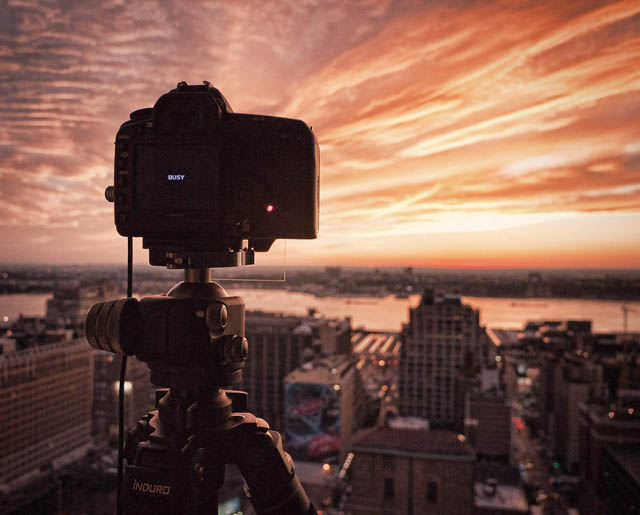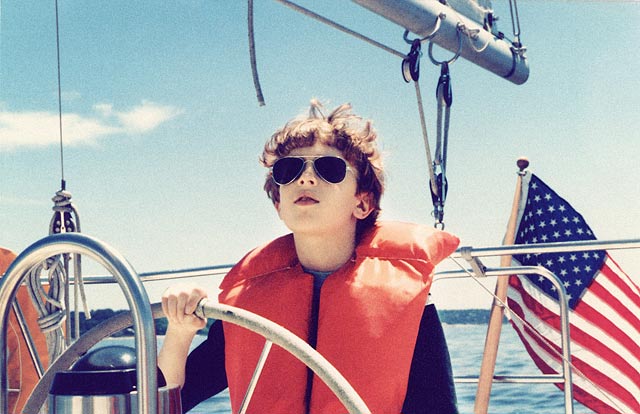hey, i have one of those!!
Does having professional equipment make you a professional? If you are a professional (ie. making a living from your profession), what kind of threat does an influx of new technologies and talent have on the existing order? And what pitfalls exist in those chaotic periods of influx?
With the introduction of cameras like the Canon 5D Mk 3 or the Nikon D800, professional level cameras have reached “affordable†levels. It may still be $3k to pick up a bare bones version, but that’s a far cry from spending $60k on an IQ180 digital back.
Although affordability is generally good, some professional photographers don’t like the hobbyist photographer proclaiming, “Hey, that’s what I shoot with, too.†It rarely happens when you’re using a $60k camera. It pro’ly doesn’t happen to neurosurgeons much, either – “Hey, that’s the same Stryker Saw I have at home!â€
While photographers may complain that now everyone who has a 5D3 or D800 thinks they’re a professional photographer, writers have always had to deal with this challenge. Writing doesn’t have a big “cost barrier†to entry, so I’m sure people were like, “Hey Shakespeare – look at this new quill I bought and all this ink. I bet I have enough ink for like 100 sonnets here!â€
The democratization of media is a modern innovation (although it pro’ly started with the printing press), but it does have its downsides. Before ePublishing, you had to convince a real publisher that your book was worthy of being printed and distributed (and maybe promoted if you were lucky). Many worthwhile books got passed over, and people without the right connections might have been overlooked. But that barrier also served to maintain a certain quality level.
When I was a kid, I had to hunt through the shelves at my local bookstores to try to find book 3 of a series where I’d already read books 1,2 and 4. Now I can just blaze through them in order on my Kindle. However, when I’m looking for a new book on Amazon, there are tons of eBooks that are, to use the technical term for it, atrocious. So I find myself doing the electronic equivalent of hunting through bookshelves – but instead of looking for specific authors, I’m trying to find the diamonds in the increasingly rough landscape. Sites like GoodReads have helped to simplify the process a bit, but it’s still quite challenging.
Authors who are already established or have some cultural prominence are, counterintuitively, the ones who benefit most from this democratization. They are no longer at the mercy of big publishers, bookstores, etc. The people who haven’t breached those old world barriers are usually the ones that are least able to benefit. Before, you might have to convince one publisher or agent that your book was worthwhile. Now, you have to convince 100,000 readers to buy that book – you have to be author and marketer. Promotion is not as simple as “good worth of mouth†– if it were, studios wouldn’t spend $40 million promoting movies that will be accessible at every multiplex in the country anyways. (Although that skips part of the formula – those multiplexes wouldn’t have that many showings if the studio hadn’t guaranteed a big media buy).
If you are author and marketer, then you may start to do what publishers and studios and other corporations do – create your own fake word of mouth. Look at the case of John Locke and others, who created hundreds of fake Amazon reviews in order to promote their own work. Brilliant? Maybe not. Effective? Definitely. Yet if you are just a “good writer”, you are now competing not only against other good writers, but people who may be much better marketers, advertisers, fake promoters, etc. The authenticity of what you’re viewing is always to be questioned – whether it’s on Amazon, Instagram or the 6pm news. Everyone is evolving with the shifts in culture and technology, and not all that evolution is beneficial.
In any event, like most things that “simplify†our life, these innovations come with their own new complexities. Email and cell phones were invented as devices of convenience, efficiency and time-saving. Yet how much of our day is spent on these “time-saving†innovations? I’m not sure, but I’m going to check my new time-boxing app to figure out how much time I spend on email and cell phones, then I’ll put it into Google Docs and make a pie chart, then with all the time I’ve saved, I’ll look at some webcams of beaches.
everything lasts forever in a photograph.
Sometimes people ask me why I got into photography or what I like about it.
Although my father did like to take vacation photos on fancy cameras and I even got to play with a Canon F1 that was lying around the house, I didn’t grow up surrounded by photography. Instead, most of my childhood memories are of family trips to England and France, and even more of constant relocation. We lived in Germany, Brazil, Israel, Northern Virginia, New York, etc. Just ahead of the internet age, there wasn’t really any such thing as “keeping in touch” with your third grade crush (although I did end up going to prom with her in another country, but that had more to do with fate and the US Air Force).
Through a series of (un)fortunate events, I eventually found myself in the strange position of making a living from photography. Still, I don’t think I had ever really examined what I liked about photography. Sure, I enjoyed the process, the combination of technique and artistry, the collaboration with subjects and crew, the pretty girls, the catering (might I recommend the caprése), the pretty girls, etc. All accurate, but it ignores the fundamental question of “why is photography important to me?” There are plenty of other things I could do for a living…so why photography?
It comes down to this: Â I’m an antisocial person who lives for human connection on a visceral level. I love seeing what makes someone tick, exploring relationships and friendships, feeling physical chemistry, finding vulnerable beauty. Unfortunately, due to imperfect memory, age, death and red wine – once I learn this information in a 3am conversation, I can’t always retain it.
I only have a hazy memory of what my friend Josh in third grade was like to hang out with (and no police reports to reminisce over, as we both had diplomatic immunity from our respective countries and paid cash for doctor visits). I only have a vague image of what Nikki, the first girl I kissed, looked like – modified by my own id and years of poor quality chocolate consumption (thankfully remedied in my adult life). And I’ve lived in many incredible cities, but can only really remember the family vacations that stuck in my head and occasionally in my father’s camera.
Sometimes, through sheer luck or possibly with the help of some craftsmanship, a photograph can capture a moment or even a person.
Throughout our lives, relationships change. Occasionally through traumatic physical events like death or illness, but often through the more mundane machinery of life. People grow up, lives diverge naturally, arguments turn into lifelong excommunication, lovers grow apart, old relationships take on new dimensions, etc. Things are constantly evolving, being destroyed and reborn.
What I love about photography is that in my images, nothing will ever change. While my own perspective on the person or place in the image will surely change in the years to come, when I go back to that image, it hasn’t changed. In 1/60th of a second, I can show someone’s mischievous spirit. I can capture the introspection in their eyes. I can highlight their sexuality in an everyday expression.
There’s a certain type of immortality that can infuse a photograph of a person. To me, a perfect image is not one that is technically brilliant, or has the most innovative composition, or was shot with unusual equipment, or any of those things. To me, a perfect image is one that gives you the same emotional experience you would get if you could sit down in a room and interact one-on-one with that person at that moment in their life.
No single image will capture a personality – hopefully we are all a bit too multifaceted for that. And neither will a 30 minute conversation capture a personality – if it did, modern courtship would be a far different animal. Instead, I’d like a single image to capture a 30 minute conversation.
I want the picture to be worth a thousand words…of meaningful conversation with my subject. You can learn a lot about someone in a thousand words. We have 278 left…




